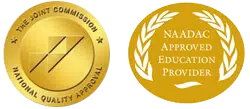Alcohol addiction afflicts millions of Americans, and in fact, it’s the most commonly used drug in the country. Many people may drink to escape a painful situation, to cope or numb grief and loss, or self-medicating an undiagnosed mental illness or underlying trauma. Whatever the reason for alcohol abuse, the treatment methods are the same. Get the addict clean and sober and provide them with the treatment and support they need to maintain their sobriety.
However, the first step can be difficult. Treating alcoholism may need a multi-prong approach, including medication, individual therapy, and group counseling. Baystate Recovery Center offers several levels of therapy for alcoholism.
Understanding Treatment Options For Alcohol Use Disorder
Your treatment can vary depending on your needs; therefore, your first line of treatment may be different than someone else’s. First-line treatmetns are defined as the initial approach and can either be medication-based or therapy-based. Stopping alcohol use to improve the addict’s quality of life and health is the main goal of alcoholism treatment.
Detox and Withdrawal
Because alcohol can be deadly to withdraw from, many people benefit from medically-supervised detoxification. The treatment is inpatient and can last about 3-6 days, depending on the seriousness of the addiction. Detoxification from alcohol can cause seizures, or delirium tremens, shaking hands, and even a stroke. It’s important to have medical supervision for alcohol withdrawals.
Medication For Alcohol Addiction
Some people may benefit from medication that can help blunt cravings for alcohol, like Naltrexone, or medication that negates the effects of alcohol if you drink, such as Antabuse. These may be prescribed as part of your detox or as part of your therapy. Or, you may be prescribed disulfiram, which can help prevent you from drinking by causing nasty physical side effects, including nausea, vomiting, and a headache. It doesn’t remove the urge to drink nor reduce cravings, though.
Addiction Therapy and Counseling
Learning better coping skills and creating a relapse prevention plan are part of alcohol addiction treatment. Support from one-on-one intensive therapy can help you understand the underlying reasons you drink, and group counseling helps you form sober connections and benefit from the experiences of others.
Some people may benefit from specialized therapy such as Cognitive Behavioral Thearpy (CBT), which helps patients change the thought patterns that lead to the compulsive behavior of addiction. For example, if you are triggered to drink when you’re stressed out, CBT can help you identify the thoughts and emotions stemming from a trigger, stop the “addictive thinking,” and employ new coping mechanisms instead of drinking.
Psychological Treatment
Many alcoholics may use alcohol to self-medicate symptoms of certain mental illnesses, like anxiety disorder or depression. In fact, some people may not even realize that they have a co-morbid disorder. Once the alcohol is removed, treatment for depression or anxiety can be much more effective. Other people with an alcohol addiction may drink to numb feelings of grief, loss, or trauma in the past. Psychological treatment can help them work through trauma in a healthy manner.
Are You Seeking First Line Alcohol Addiction Help?
We can help. Baystate Recovery Center offers several kinds of addiction therapy, including medical detox, group counseling, and intensive outpatient therapy. We also have family counseling to help you build better relationships and support systems. Contact us today for help.
Baystate Recovery Center, a clinically Infused 12-Step Treatment Center for Drug and Alcohol Addiction, was founded by two partners in addiction treatment services, John Checchi and Michael Wilson.



